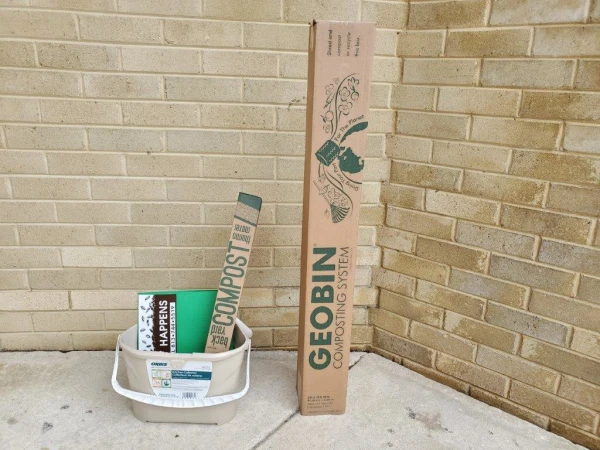Find out the benefits of composting by the County and at home
Food waste makes up one of the largest sectors of Hillsborough County’s waste stream and has multiple negative effects on the environment and human health if not managed sustainably. Having a high moisture content means food waste does not burn very well in the waste-to-energy process. When buried in a landfill, food waste releases potent greenhouse gases like methane, which contributes to climate change.
Organic matter contains nutrients such as nitrogen, which is vital to plant growth but lost when discarded in the trash. Food scraps are wasted when placed in the trash can, but you can take matters into your own hands through composting.
What is composting?
Composting is the controlled breakdown of organic material, like vegetable scraps and yard waste, by bacteria, fungi, worms, and other organisms in the presence of water, air, nitrogen, and carbon. Compost itself is the final product of organic matter that looks like soil and can be used as an amendment on your lawn or garden, retaining nutrients and moisture to promote growth. Composting saves landfill space, reduces greenhouse gas emissions, and produces a fertile resource for all your landscaping needs.
Backyard composting workshops
Composting is a great method to manage your organic waste and it can be done right in your own backyard. Attend a composting workshop taught by UF/IFAS Extension Hillsborough County to learn how to turn your food waste into a nutrient-rich soil amendment. Find a composting workshop that fits your schedule on the Calendar of Events and see what other great classes are being taught by the Extension Office.

Registering and attending a workshop includes a presentation, information packet, compost bin, kitchen bucket, and thermometer for each participating household. Be a part of the solid waste process and learn how to start composting as you recycle your organic waste.
How Hillsborough County turns waste into compost
Through an innovative partnership between Solid Waste and Water Resources, Hillsborough County combines tons of mulched yard cuttings and biosolids to create an in-demand soil amendment. Yard waste - grass clippings, leaves, tree and bush trimmings, and small stumps - traditionally has been used for landscaping or cover at the landfill. Treated wastewater by-products, known as biosolids, have been trucked to the landfill for disposal.
Mixing, curing, and selling the product preserves disposal space at the Southeast Hillsborough County Landfill, saves taxpayers money from hauling, disposal, and other costs, and adds new revenue for the County. The end product meets stringent state and federal regulatory guidelines, providing a nutrient-rich material that safeguards consumers, crop production, and the environment.
Free Mulch
Hillsborough County does not provide compost to the public. However, Hillsborough County residents can pick up limited quantities of free mulched yard waste at the County’s Yard and Wood Waste facilities, during normal operating hours. The County makes no guarantee on the quality of the mixture. It is the resident’s responsibility to determine if the mixture is fit for the intended use.

